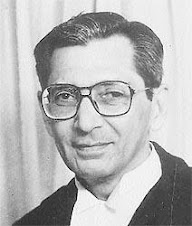Rakesh Tiwari, Additional Sessions Judge of in Delhi, would not have imagined in his wildest dreams that one day his name would make headlines altogether for wrong reasons. The manner in which the Delhi High Courts upbraided him for his ignorance about even elementary knowledge of the Code of Criminal Procedure (CrPC) has been widely reported. The said judge has also been asked to go on a one month study leave to upgrade his knowledge of the basics.
Close on the heels of the admonishment has come the news about the cautioning on parts of the highest courts of the country about the arbitrary issuance of non-bailable warrant. A three member jury headed by the Chief Justice himself has asked the judiciary to make proper balancing between right to personal liberty and the need to safeguard the interests of society in all such cases.
While these news have rightly made headlines, a study about the subordinate judiciary covering six states, sponsored by the UNDP, has not received the attention it deserves.Interestingly Jharkhand, which is one of the six states, has come out with its report first. Monitored by a high court judge, the aim of the study was to find out barriers if any in providing access to justice for the underprivileged sections of our society.
And conclusions of the study are not at all flattering for the judiciary. As reported in a section of the press it ' brutally confirms the stereotypes of ignorance, indifference and inefficiency that mark the administration of justice in the lower courts.'(The Telegraph, 27 April 2007) The study makes it clear that despite spending five hours in the court, a subordinate judge in any of the district courts generally disposes just two out of the 29 cases listed for the day. Commenting on the time management of the judiciary it also alleges that the 'judges actual "loaf" around, both physically and mentally.' Of course the report does not spare the police and the lawyers also who also contribute their share in causing inordinate delay in disposal of cases.
Looking at the menace of arrears at an all India level which has already crossed 25 million mark, it can be expected that the conclusions of the study in the remaining states - namely Karanataka, Kerala, Maharashtra, Madhya Pradesh, Orissa and Bengal - would not be qualitatively different.
The only silver lining to the otherwise grim scenario is the growing realisation that there is a gap between precepts and practice. It is not for nothing that the then Chief Justice of the Supreme Court Mr Bharucha had officially lamented that at least 20 % judged of the higher judiciary are corrupt.
By Subhash Gatade
18 October, 2007
Countercurrents.org
An initiative to keep track of judges, jurists and victims of judgments.
Friday, October 19, 2007
Subscribe to:
Post Comments (Atom)







No comments:
Post a Comment